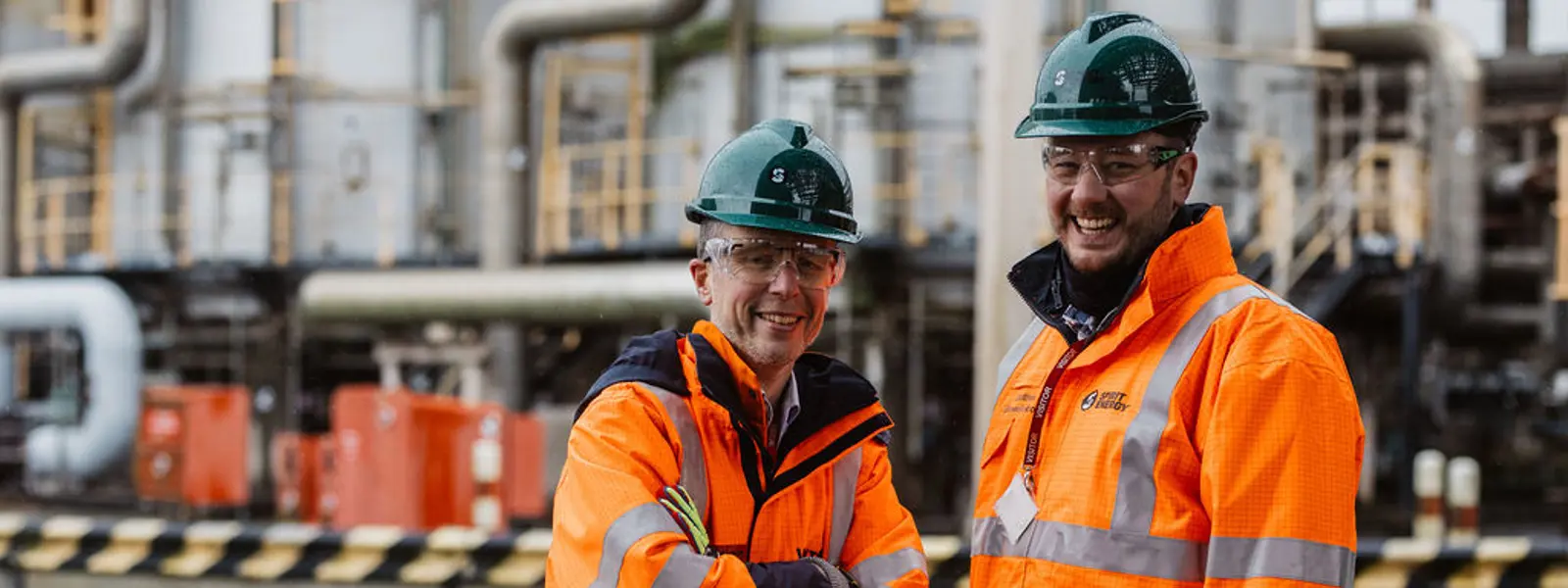PURSUING STRATEGIC ENERGY TRANSITION OPPORTUNITIES FROM OUR EXISTING ASSETS WITH MNZ
MNZ is a joint venture between Spirit Energy and shareholders Centrica plc and Stadtwerke München GmbH (SWM). Our Mission is to provide a permanent decarbonisation solution, converting the depleted South and North Morecambe gas fields off the coast of Barrow-in-Furness to provide a permanent, safe and secure carbon storage.
The gas fields will be repurposed into a world-leading facility, able to accept up to 1 gigaton of CO₂ in its lifetime. This is the equivalent of three years’ worth of UK emissions.
This state-of-the-art carbon storage facility, has the potential to be one of the UK’s biggest carbon storage hubs and could store up to a gigaton of carbon dioxide - equivalent of three years’ worth of current UK CO₂ emissions.
CO₂ will be transported to the site by pipeline, ship or rail, offering a long-term decarbonisation solution for emitting industries. This will allow carbon-intensive businesses all over the UK to remain productive whilst meeting the UK’s Net Zero targets, securing the thousands of jobs currently reliant on these industries.
Spirit Energy has 50 years’ experience of operating the South Morecambe and North Morecambe fields. The site will safely store carbon dioxide deep underground in gas fields which have ceased production, allowing us to transform existing infrastructure for sustainable purposes.
The Morecambe Bay gas fields also have the potential to form the core of a future low-carbon hub in the North West, which could attract millions in international investment and create new, highly-skilled green jobs. We are exploring opportunities such as blue hydrogen production, hydrogen power generation, direct air capture, and integration with renewable power generation to expand the project, and potentially work in tandem with our storage facility to help realise the region’s full Net Zero potential.
What is CCUS
Carbon capture, utilisation and storage (CCUS) is a way of reducing carbon dioxide from emitting industries, which can help them on the path to Net Zero. It follows a three-step process involving: capturing carbon dioxide produced by industrial activity, transporting it via pipeline, ship, or rail and then storing it deep underground permanently, so it cannot enter the atmosphere.
Why is there a requirement?
The Intergovernmental Panel on Climate Change (IPCC) and Climate Change Committee (CCC) highlighted that, if we are to limit future temperature increases to 1.5°C, we must do more than just reduce emissions – we also need to deploy technologies to prevent carbon from entering the atmosphere, and to support industries that cannot readily reduce their own emissions.
CCUS is the solution, and one of the very few technologies that can significantly decarbonise hard to abate industries such as iron & steel, fertiliser, cement and chemical. It has the potential to transform the UK economy - retaining thousands of industrial jobs, while also creating new and innovative green roles. According to Offshore Energies UK (OEUK), CCUS alone could attract £100bn in international investment by 2050.
MNZ | PEAK CLUSTER PARTNERSHIP
The MNZ | Peak Cluster partnership will decarbonise 40% of the UK’s cement and lime industry and ensure that close to four million tonnes of CO₂ emissions from vital industry within Peak Cluster will be captured and permanently stored in Spirit Energy’s MNZ carbon store each year, from 2030.
Peak Cluster is made up of five of the UK’s leading cement and lime producers. The project is set to generate the equivalent of £1.8bn GVA by 2050, creating and safeguarding more than 13,000 jobs across Derbyshire, Staffordshire and Cumbria, and attracting a further £5bn of investment in construction and operations. It will also see a combined annual increase of £154m in skills uplift and wage increases.

